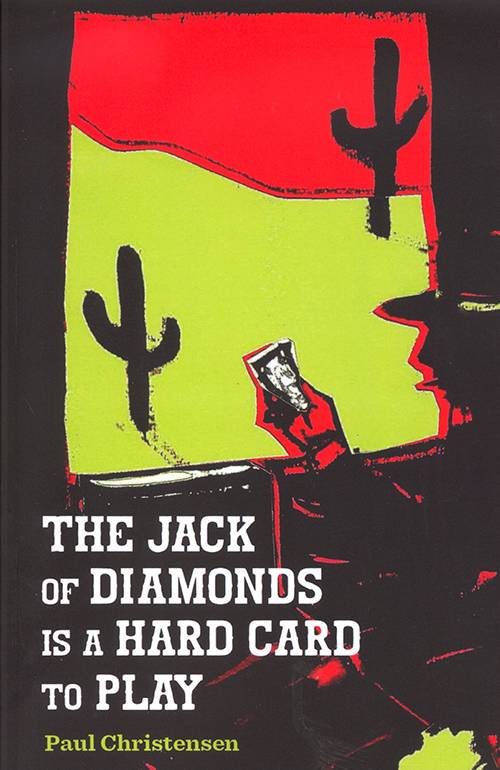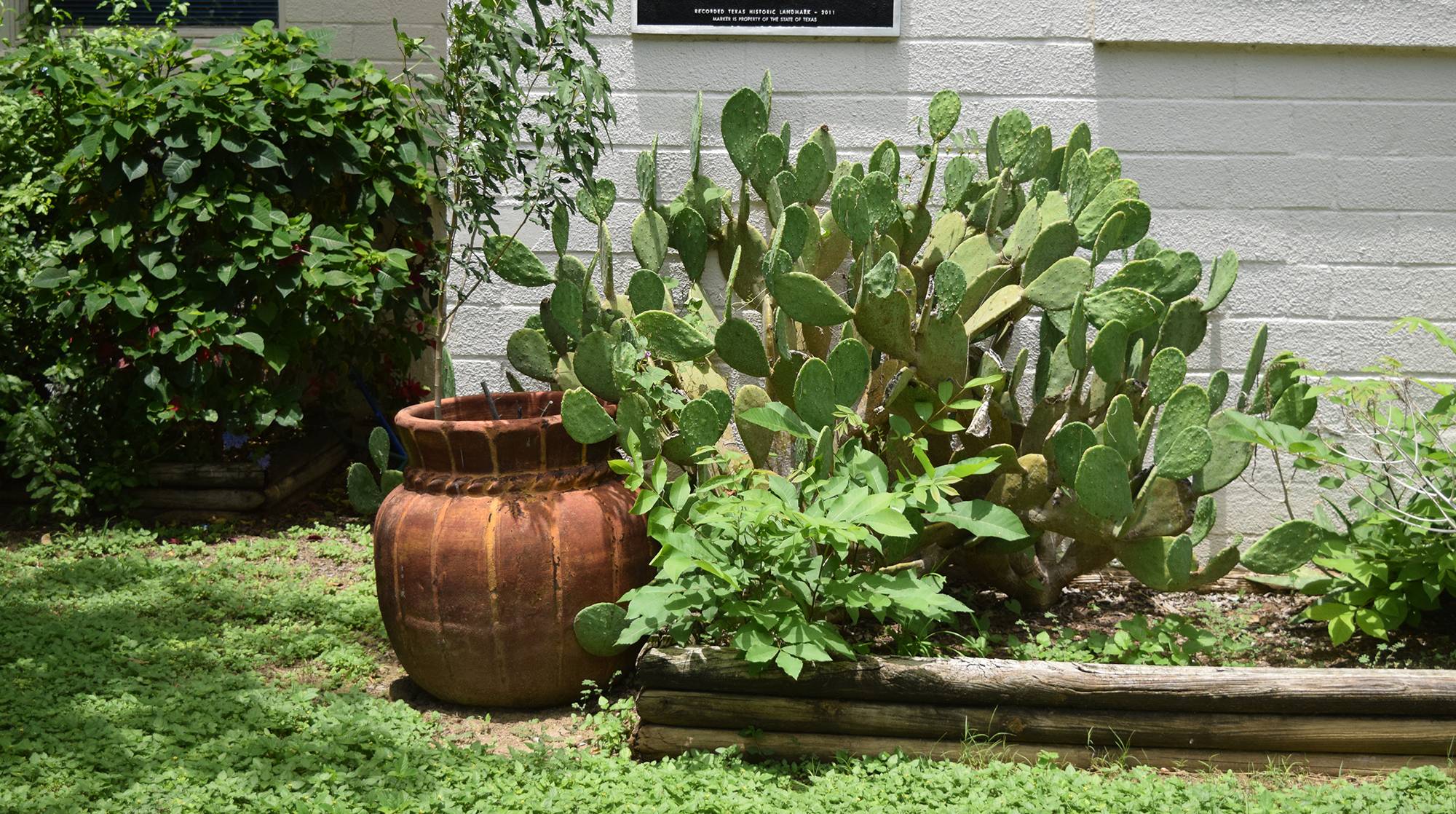
The Jack of Diamonds is a Hard Card to Play
by Paul Christensen
Beaumont: Lamar University Literary Press, 2015
104 pp. $15 paper
Reviewed by
Jeffrey Alfier
“Perceived shortcomings notwithstanding, his lines rebound with fresh poignancy and a strong use of figurative language and crisp images. The Jack of Diamonds is a Hard Card to Play comes with my highest recommendation.”
As a southwestern poet, I looked forward to Paul Christensen’s eighth collection, lured as I was by the book’s title. He did not disappoint—just as he hasn’t disappointed in his previous poetry collections, especially Hard Country (2005), The Human Condition (2011) and Blue Alleys (2001).
Though often written in loose, non-metered narrative, these new poems never languish in misplaced words as his rhetorical analogies enliven his images, achieved through haunting undertones. As such, we find a blue sky “like a widow’s veil / hung over the noon sun.” This pleasing trend continues in unexpected ways, where “Rolls of thunder sound like an old man / coughing up his life.” Elsewhere, in “Thoughts before My Nap,” the speaker notes how “the heat stood / like all the ghosts of the Civil War / in the attic.” Especially stark and skillfully rendered are Christensen’s images of solitude:
Rye whiskey in your throat, a road
leading nowhere, a camp fire long gone out.
Even heroes can be lonely, as in “The Hero of the West”:
He has no home to rest
his soul within, only
a bed where the springs sing to him of loneliness.
Christensen brings ordinary vistas to renewed life with exemplary and memorable language in a confluence of voices that transcend multiple eras. Indeed, history is replayed in its tragic and divided moments where “the past keeps / intervening…” in the physical environment and in human folly, with a touch of redemptive wisdom attained through engagement with apparently insignificant sights:
A path is a dent in the earth
where feet have formed their habits.
…
Freedom begins in the stuttering
of the clock, the silence between
each jerk of the minute hand.
Again, in “At the Dallas Car Lot,” Christensen renders the aspirations and grievances of us all, a new car shining “like a meteor in the sky /” that will surely die “if no one / sends it careering down a freeway soon.” In “An Ordinary Morning in Austin,” working men and women slave away in a boiler room, or on keyboards in offices, seeking escape:
You wish you were just waking
up in Shanghai a hundred years ago
…
You wish you were
a girl playing hopscotch on a London street.
The sensate pervades and enlivens Christensen’s poems. In a man’s garage, “…the rags stink of despair.” In a house in Laredo, “I smell onions, the salsa bubbling / in a pan, an exhaust fan rattling / with greasy air…” With such concision, Christensen gives his readers keen visuals, as in “Jack of Diamonds”:
Louise sat there in her fiery red dress,
legs crossed on the bar, net stocking
with a run down one calf, and high heels
looking like they could use a shod.
Very often, the narrator’s voice is that of his own deliquescence, his senses tuned to odors that linger in the unmoving dust of household rooms, in a town where “loose / boards chatter of the past.” Through such finely-honed verse, Christensen speaks of our fallen world, “the soiled heavens / blown west by refineries / and chemical plants.”
While the Southwest is prevalent in history and landscape, Christensen also indicts the self-deceptions of aberrant consumerism everywhere. In ‘”Between Smyrna and Babylon,” the speaker asks, “Can the Post Oak Mall quench / my soul’s thirst?” as he wanders between the mall’s nail salon and Radio Shack, seeing himself “…in a linoleum and drywall desert, wandering in the footsteps of the old fathers,” querying, “Tell me if redemption / is possible with a coupon? Have you seen the shoes on sale? Could they take us to the Promised Land?”
At times, Christensen’s lines slacken to ordinary prose. The poems that don’t quite work for me are those where he could have tightened his lines. Most of these are in the third section of the book. Perceived shortcomings notwithstanding, his lines rebound with fresh poignancy and a strong use of figurative language and crisp images. The Jack of Diamonds is a Hard Card to Play comes with my highest recommendation.
Jeffrey Alfier won the 2014 Kithara Book Prize for his southwest poetry collection, Idyll for a Vanishing River. He is also author of a second southwest collection, The Wolf Yearling. Other works are The Storm Petrel and The Red Stag at Carrbridge (forthcoming). Recent credits include Southern Poetry Review, The Evansville Review, and Poetry Ireland Review. He is founder and co-editor of Blue Horse Press and San Pedro River Review.
